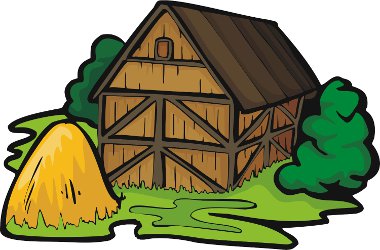"Used to" with
Infinitive or
Gerund
We can create sentences with used to in
constructions with the
infinitive or the gerund, and we would get very different
meaning!
Look at the examples below.
Click Here for Step-by-Step Rules, Stories and Exercises to Practice All English Tenses
1. Dad is used to making cookies, so they always come out perfect! He even knows how to make three different kinds.

2. Dad used to make cookies for us when we were little, but he hasn't made them in years. I wish he would make some now!
So what do we have here?
In the first example, we use the following construction:subject + to be + used to
+ gerund
This means that Dad is accustomed to making cookies: he does it a lot and feels comfortable doing it. It feels normal to him.
In the second example, we use this construction:
subject + used to +
infinitive
This means that Dad made cookies regularly in the past, but he doesn't do this anymore.
Now let's dive into each of these constructions.
"Be used to doing"
This construction means that the person feels normal doing a certain activity. The activity is familiar to them.In this construction, notice that we use the gerund, ending in -ing.
We can use this construction in the simple present, the simple past, or the simple future. We just need to change the form of the verb "be".
Example:
- Brenda is very busy, but she doesn't mind. She is used to working very hard.

More examples:
- I don't mind helping you with your homework. I am used to solving
math problems, so it's easy for me.
- The kids are used to having
a nap after lunch, so if they don't sleep for a bit, they're very tired
in the afternoon.
- Inga is used to getting up very early. She likes starting work at 8am.
"to be used to doing"
| Positive | Negative | Question |
| subject + to be + used to + gerund | subject + to be + not + used to + gerund | to be + subject + used to + gerund |
Examples with negatives and questions:
- They are
not used to eating so much at lunch time. Maybe we should
serve them less food.
- I am
not used to listening to music while I work. I find it
distracting when they turn on the radio at the office!
- Are
you used to sleeping in late? I noticed that you got up at
11am this morning!
- Is
this employee used to getting lots of praise from her
supervisor? We want to be sure she feels comfortable.
- Erin is
not
used to having so much work! But Brenda tells her that
she'll be just fine.

"Used to do"
This construction means that the person did something regularly in the past, but they don't do it now.In this construction, notice that we use the infinitive, the base form of the verb.
This is similar to the simple past, but "used to do" means that the person did the action regularly and repeatedly: it was a habit. We only use this construction to talk about the past.
Example:
- Tommy used to go everywhere with his teddy bear, but now he's too old for that.

More examples:
- I used
to work in an office downtown, but now I work much closer
to my apartment.
- When the children were younger, they used to go
to bed at 7pm, but now they can stay up later.
- I always used to feel afraid when my mother turned off the light! I was scared of monsters in the closet.
"used to do"
| Positive | Negative | Question |
| subject + used to + infinitive | subject + did + not + used to + infinitive | Did + subject + used to + infinitive |
Examples with negatives and questions:
- Craig didn't
used to speak German, but now he is fluent! He studied for
five years.
- I didn't
used to like vegetables. Now I love having salad with my
meals.
- Kim didn't
used to enjoy reading very much, but now she finds it very
relaxing.
- Did
you used to watch scary movies when you were younger?
- Did
Melanie used to be a model? She's so beautiful!
- Your manners are terrible! You always leave the door open! Did you used to live
in a barn?

These constructions can seem confusing at first, but with practice, you'll feel comfortable with them. If you want to learn how to use more confusing word pairs, visit that section of our site for lots of explanations and examples.
Get Updates, Special Offers, and English Resources
Download your FREE GIFT (the first two chapters of
English Short Stories Book and Workbook)
as soon as you join!

By submitting your email, you consent to receiving updates and newsletters from us and to the sharing of your personal data with third parties for the purposes of sending you communications. We will not spam you. You can unsubscribe at any time. For more information, please see our privacy policy.
Return
from "Used to" with Infinitive or Gerund to Gerunds and Infinitives
Return to
Really Learn
English Home Page





